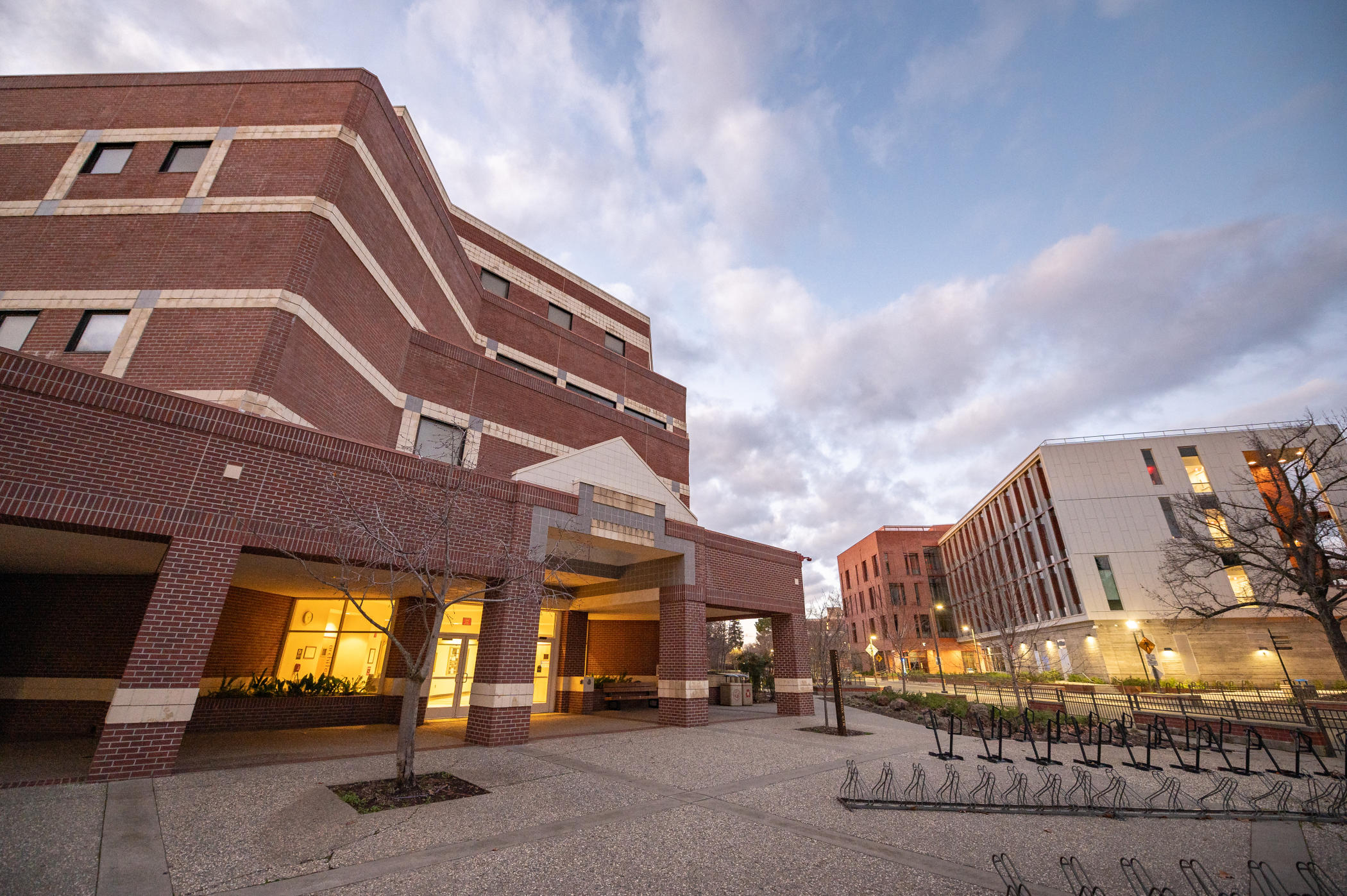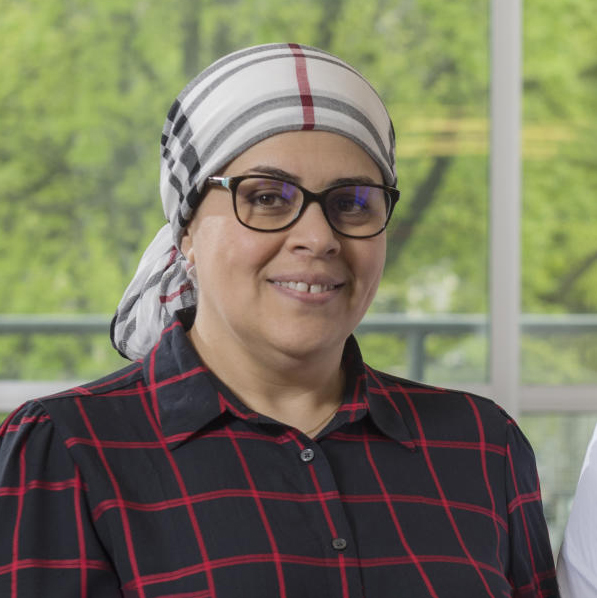Office Hours: Electrical and Electronic Engineering Professor Hadil Mustafa

O’Connell Technology Center (OCNL) and Science Building (SCI) on Thursday, December 30, 2021 in Chico, Calif. (Jason Halley/University Photographer/Chico State)
The growing gap in women earning engineering and computer science degrees weighs heavily on professor Hadil Mustafa. Through example, guidance, activism, and infectious passion, she works daily to reverse that trend—from kindergarteners to college students. In 2018, she helped launch the SheTEACHS afterschool program for K-12 students to build excitement about STEM, and she proudly advises the student chapter for the Society of Women Engineers, which hosts the annual Imagineer Day to engage more than 200 K–8 students in labs and activities. To support those students once they reach college, Mustafa developed a tutoring center on campus where upperclassmen are leaders in helping prevent their peers from failing or withdrawing from difficult classes. And she relishes her own opportunities to shape their futures one-on-one, advising roughly a third of all computer engineering majors.

Mustafa Fact #1:
Her favorite class to teach is “Digital Systems Design” (EECE 344).
How did you get interested in engineering?
When I took my first chemistry and algebra classes in middle school, I remember carving on my desk, “I will become a chemical engineer.” I was fascinated by both subjects and wanted to challenge my parents’ preconception that engineering is for boys.
What challenges did you face as a woman in the field?
I often find myself dealing with gender bias. Electrical and computer engineering classes are dominated by male students, and many engineering students find it hard to accept a female in a role of authority. On a daily basis, I feel the need to work harder than male faculty members to receive the same level of respect.
Mustafa Fact #2:
If she wasn’t a professor she would be working as a chemical engineer in an oil refinery.
Why is it important to you to see more women in this field?
I think it is important for women to participate equally in all fields. I am hoping that providing girls with a safe and protected environment to practice and work with electronics and computers will give them an equal opportunity to navigate these fields without stereotyping or prejudgments.
What are the greatest barriers and opportunities for women in STEM?
The gendered stereotypes that “engineers are mostly boys” and that young girls don’t do well in math and science mean we need to give girls access to STEM at an early age and provide them with role models of women in the field. We rely on the media’s presentation of women in STEM and forget that there are a lot of women out there working hard every day to make a difference—including many of my female students.
Mustafa Fact #3:
She has been part of allocating over $1.86 million in research grants to bring better facilities, research labs, programs, and events to Chico State students.
How have your students inspired you?
I always try to create a safe environment in my classes where all of my students are encouraged to participate and engage in the learning process. Women in my engineering classes make up less than 7 percent of the student population. Being able to encourage female students to participate, giving them a safe environment to learn and make mistakes, and seeing the progress they make throughout the semester has been a highly rewarding experience for me.
Mustafa holds a bachelor’s degree in chemical engineering from the University of Jordan; a master’s degree in electrical and computer engineering from California State University, Los Angeles; and a PhD in electrical and computer engineering from the University of California, Irvine. Before working at Chico State, Mustafa worked at UCLA and the Computer Educational Institute in Los Angeles, and as a research associate at the Egyptian Petroleum Research Institute in Cairo, Egypt.


